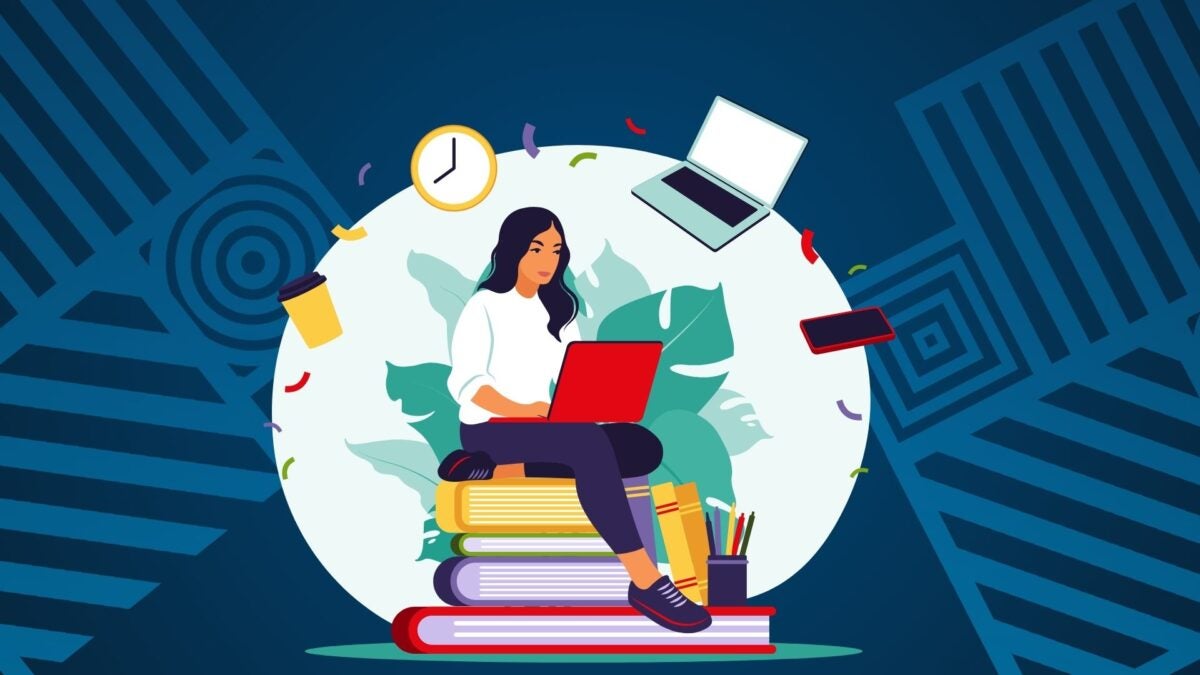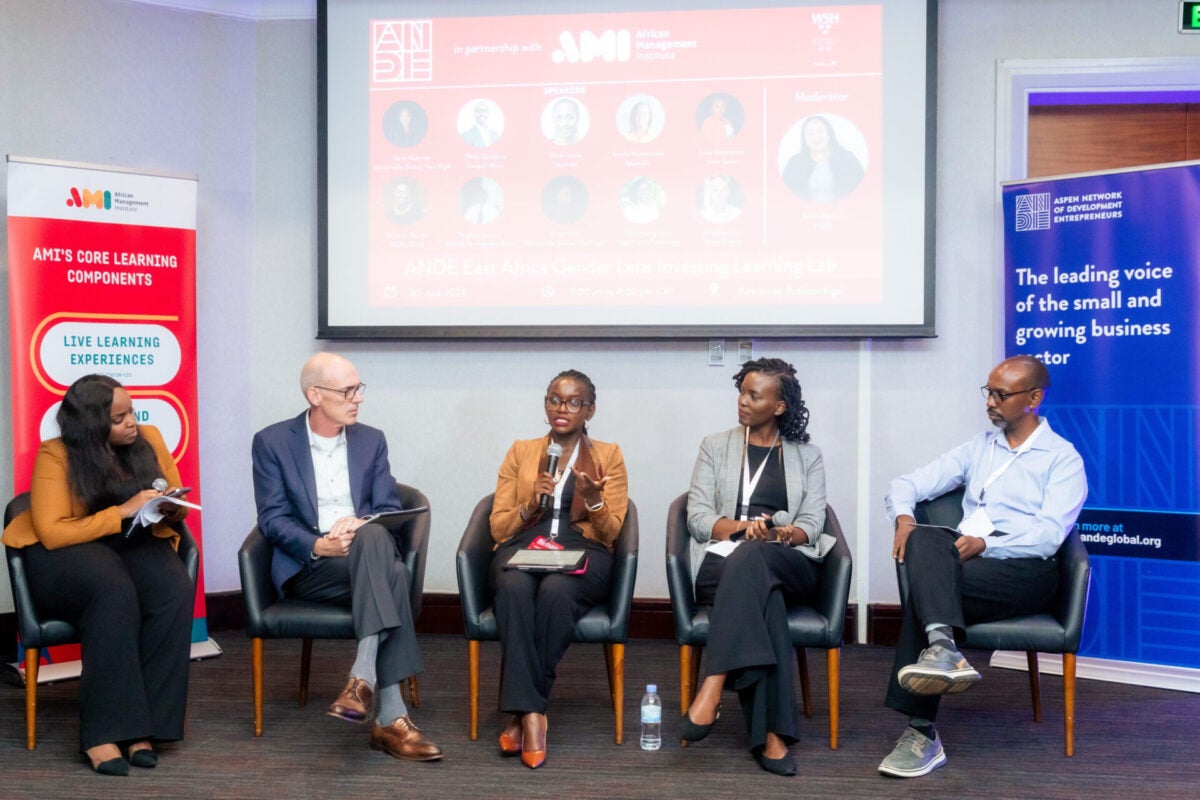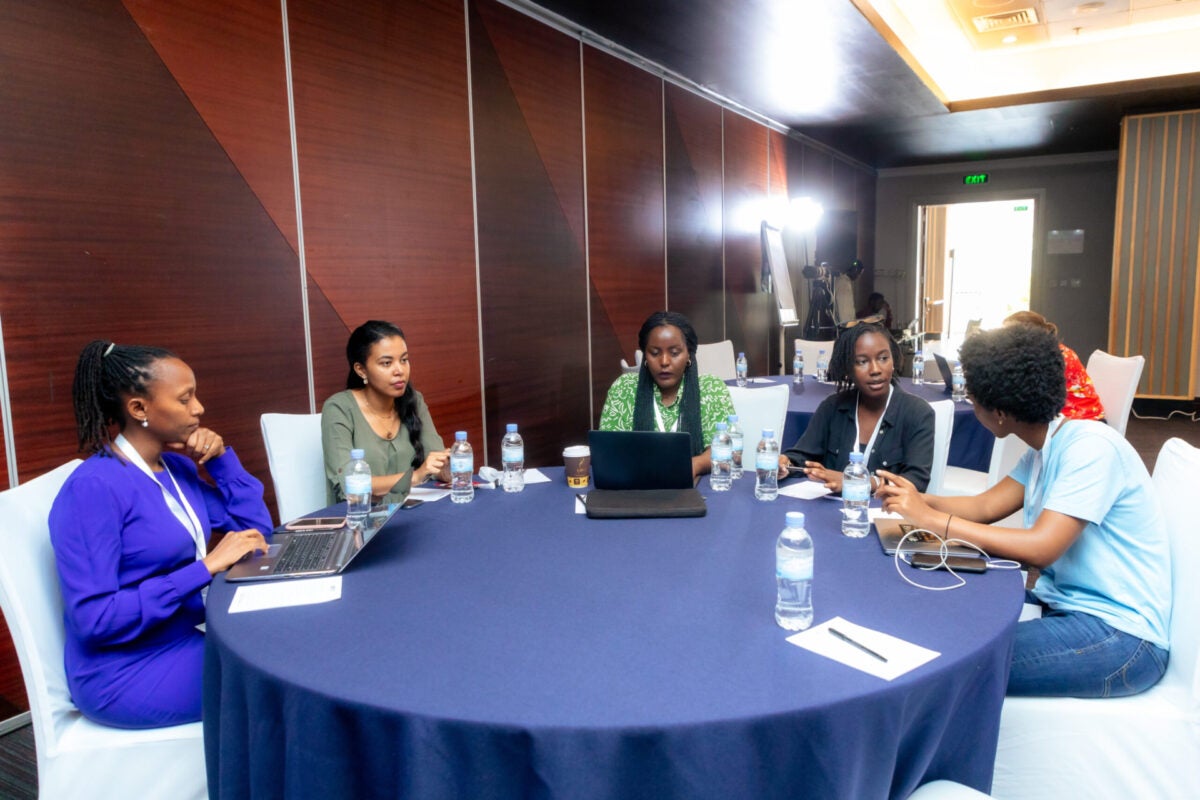Supporting Women Entrepreneurs Beyond Funding

Whether offering practical workshops on how to use digital tools, presentations on the different loans available, or the opportunity to learn to network in a low-stakes environment, women entrepreneurs all over the world benefit from a bespoke approach to support their entrepreneurial journeys.
Teams in regional chapters, members, and partners of the Aspen Network of Development Entrepreneurs (ANDE) have deployed a variety of strategies to support women entrepreneurs—and other key stakeholders within the funding pipeline–to have equitable access to funding and support.
As the International Center for Research on Women noted, “Gender-specific training can successfully address the challenges female entrepreneurs face and provide support for the multiple constraints on their business activities.”
Technical assistance for female entrepreneurs that focuses on hard skills like financial literacy and business growth in tandem with strengthening women’s confidence, resilience, and risk propensity is vital. ANDE’s African chapters heard from numerous partners that women entrepreneurs need empowerment and more technical skills across their region. They also need access to information.
All these deficiencies hinder their proper use of the existing financial instruments and capitalizing on opportunities in the SGB sector.
In preparation for their Spring 2022 learning community, ANDE’s Southern Africa chapter compiled an analysis of the varied support available for women-led businesses in Africa, including the intentional identification of opportunities, gaps, and lessons learned.
Intentionality is crucial

Property Point, an Advancing Women’s Empowerment Fund grantee, pushed forth their own project to adapt a successful two-year program to better serve women entrepreneurs in the property sector in South Africa. Their project provides entrepreneurs with the skills, training, and personal development support they need to develop their enterprises into fully independent companies that can compete for opportunities in the market on merit.
While the content is what pulls women entrepreneurs into a technical assistance program, their human experience drives their sustained engagement in the program. Pro Mujer’s Emprende—who led a Learning Community for members of the ANDEAN ecosystem in the Fall of 2022—deployed an asynchronous training program to fit the busy lives of their hundreds of women entrepreneurs.
However, they realized pretty quickly that there needed to be an opportunity for these women to connect with their peers to bridge the gap between their technical skills and lived experience. Pro Mujer offered live sessions with mentors and staff experts to provide guidance and ensure the women felt supported through challenges. Most participants responded incredibly positively to these live sessions and noted the value of connection with mentors and peers.
The issue of women’s access—or lack thereof–to capital remains at the forefront of the conversation in closing the gap in women’s involvement in the economy as entrepreneurs, employees, and consumers. But ecosystem stakeholders need to address other factors.

Women entrepreneurs expressed a pressing need to train other essential actors within the funding pipeline. Creating space for learning amongst investors is imperative. The ESEA and India chapters brought in their granting partner, Village Capital, who created the Investor Equity Alliance in ANDE’s Gender Action Labs. The IEA is an alliance of industry insiders and veterans committed to co-create, demonstrating, and promoting models and processes that will improve funding outcomes—solely providing technical assistance to women.
AGEI aims to support and highlight the innovative strategies that ecosystem players are creating to minimize the gender gap that persists in their communities. These learning communities provide unique opportunities for our partners, members, and regional players to share this work specifically tailored to their immediate communities’ needs – with the hope that these are the solutions that will drive forward a sustainable, locally-led change.
The culmination of these transformative initiatives, woven into the fabric of these learning communities, empowers women entrepreneurs with an exciting leap forward in navigating a landscape historically skewed towards their male counterparts. Through meticulously crafted training programs and innovative approaches, these women are equipped to transcend barriers and seize their rightful place in a business world that once seemed out of reach.
By Kendahl Tyburski, ANDE
